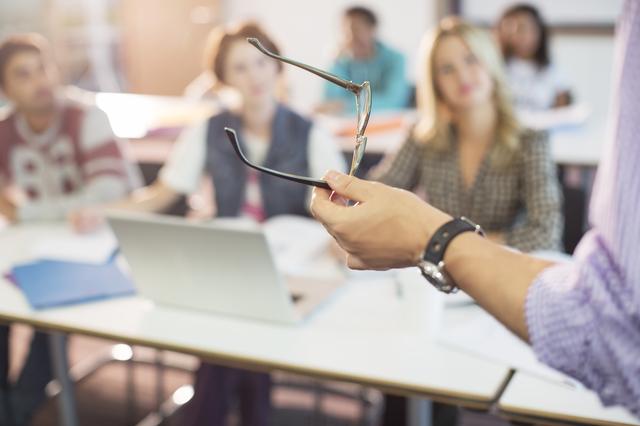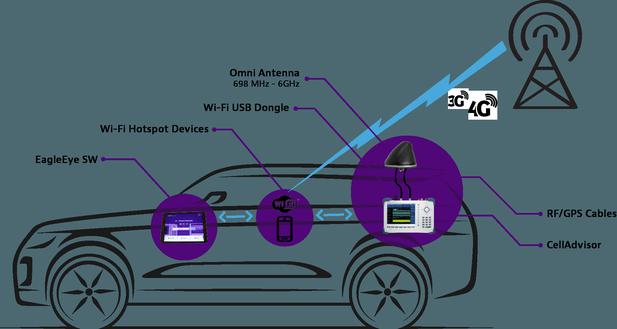Education experiment
Definition
Education Test Method is the principle and method of researchers to use scientific experiments, with certain educational theory and their assumptions, dedicated to control and manipulate certain educational factors or Education conditions, through the results of educational activity or education phenomena with the results of the control, and the results of education, to reveal the law of education activities.
Features
1. Prerequisites the "Experimental Method, etc." There must be a clear scientific assumption before the start of the start. The experiment assumption is a hypothetical speculation of experimental relationship between experimental factors and educational effects on the basis of experimental factors and education. The history of scientific development, any of the emergence of scientific theories, is established by scientific hypothesis experiments and practices.
Education experiment is a certain issue in education, and proposes a scientific concept and hypothesis, and then puts the test, accept or reject assumptions. For example, what is the relationship between research-based learning and development student capabilities? What is the relationship between class team activities and class collective cohesiveness? What is the impact of teachers and students in the development of student personality? Can a certain teaching method promote students' learning ability? Wait, you can put forward different theoretical hypothesis and verify it through experiments.
2. The experimental process is strictly actively controlled
and observation method, the survey method is different in natural state, the emergence of negative waits is different, the experimental method is Under strict control conditions, people set some kind of situation, and actively actively promote certain phenomena, nature characteristics, and then reveal things, the causes of things. In the educational experiment, the self-variable is the experimental factor, due to the variable, the experimental effect is variable, depending on the variables of other variables, is the reaction of the experimental factors and other variables, which is the results of the experiment. For example, in the experiment of teaching methods, the teaching method is self-variable (experimental factor), teaching quality is due to variables (experimental results), experimental control, except experimental factors (such as age, number, intelligence, learning results) , Teachers, teaching materials, students' efforts, teaching time, etc.) on experimental results. Control is the essential characteristics and essence of the experimental method, no control, and it is not an experiment.
3. Exploring the causal relationship between variables
The main purpose of education experiment is to explore the causal relationship between variables. Because all unrelated factors in the experiment have been strictly controlled, only experimental factors for variables. Therefore, this result is inevitable, researchers determine the causal relationship between experimental factors and results. Such as "experimental factors" experimental factors are in-depth attempt teaching methods, "experimental factors are in-depth attempts, due to variables are students' innovative ability. After making operational definitions on the "Try Teaching Method", two classes in the low grade and senior students were performed for one semester. The experimental class students made students in-depth attempt before the creation. And the students who do not conduct in-depth attempts before the creation, in the case of strict control of other conditions, the works of the experimental class are compared with the work of the students, and create imagination Abundance, more fullness in the picture, more distinct in personality characteristics, and the entire picture is full of lively, energetic, childlike. This revealed the causal relationship between in-depth attempt teaching methods and innovative spirit.
There is a causal relationship between the two types of variables, and three conditions are required to meet the three conditions:
(1) Co-change relationship. The argument changes from the same direction from the variable. As in the above example, after the attempt teaching method of the art lesson, the students' innovative ability is improved. Explain that there is a total variable relationship between the two variables.
(2) time order. There are changes in variables before they have changed in variables. In the above example, there is no need to have an improved ability to improve, and try the teaching method.
(3) Control is independent variable. In the above example, other factors affecting students' innovation capabilities, such as the original foundation of the experimental class and the control class, the level of teachers, student learning attitudes, etc., is the unrelated variable that needs to be controlled.
4. Repetitive
so-called repeatability means that the same experimental results can be obtained in different regions under the same experimental conditions. The experimental results itself is obtained after a long-term difficult experience. Once a causal relationship is determined, it is certain that it has a high scientific. Therefore, if the same experimental factors are applied, the same experimental factors are applied, and the interference of the unrelated factor is controlled, and the same method is operated, and the substantially the same conclusions should be obtained. The reproducibility of educational experiments makes the experimental results have stronger persuasiveness and promotion value.
type
1. Whether it is tight according to experimental control can be divided into true experiments.
The true experiment is an experiment that is fully controlled for all factors that may affect the experimental effects. As in the experiment, the experiment was equalized, the experimental group and the control group characterized, the experimental environment was fully controlled, and the independent variables in the experiment were thoroughly excluded or off.
However, the subject of education experiment is a person, the most complex animal in the world. We cannot use students in the laboratory in the natural science laboratory, and strictly control his thoughts and behaviors. The educational experiment mainly adopts the natural experimental method, so the experimental objects and the experimental environment are difficult to make a full strict control. Such as the experimental group and the compelling group failed to completely equivalent. This lack of experiments in control of one or several aspects are quasi-experiments. Common quasi-experiments have experiments in the case of unequality in groups, and experiments such as experiments that have not been selected and controlled to the experimental environment for experiments in the experimental environment without performing experiments. In a sense, education experiments can only be quasi-experiments.
2. Whether the experiment is pioneering, experimental research can be divided into a groundbreaking experiment, verification experiment and transformation experiment.
The groundbreaking experiment refers to the experiment that the former has never been done and has a groundbreaking.
The verification experiment refers to the experiment that the former has done, and the researchers repeat them according to the same approach, including the first round of experiments. Such as "Experimental Research on Quality Education Experience in a region" and so on.
Reconstruction experiment refers to the experiment of the actual and improved experiments based on the experiments that others have done.
3. According to the size of the problem, it can be divided into single single experiment, multi-department experiment and overall experiment
single-book experiment refers to a discipline or a special Experiment of sexual education activities. Such as the experiment of primary school language note, early reading and writing; primary school English "three integrated" teaching method reform experiments; primary school language "four combined" experiments.
Multi-study is an experiment that includes one or more educational activities of two and more than two disciplines. Such as the experiment of computer-aided teaching involves various disciplines such as language, mathematics, common sense; basic education curriculum reform experiments involve the setting, time, progress, etc. of the course of basic education.

Overall experiment also in the city comprehensive experiment. It means the use of systems and overall modern thinking methods to study the reform of the overall internal elements and their compositional structures to seek the optimization of overall functions. Overall experiments often involve educational environment, school management system, evaluation system, teaching methods, curriculum settings and other elements. Such as "the overall reform of primary and secondary schools", "primary optimization development comprehensive experiment", etc.
4. According to the experimental factors, it can be divided into single-factor experiment, two-factor experiment and multi-factor experiment.
Single factor experiment refers to experiments with experimental factors in the experiment process. Such as "Research on the relationship between the primary school low-grade student copying and literacy", the experimental factor is only one of the students' copying. For example, "Experiments with a recording with a composition", the experimental factor is only one, that is, use the recording with the student composition.
The two-factor experiment refers to the experiment of two experimental factors in the experiment. Equality Experiments in the Centralized Practice Teaching Method of Modern Primary School Mathematics and the Reform of Textbook System. Experimental factors include two centralized practice teaching methods and teaching materials reforms.
Multi-factor experiment refers to an experiment of three and more experimental factors in the experiment. The overall reform experiment mentioned earlier is a multi-factor experiment. For example, the "Experiment of the overall development of the Chinese language ability" made by the Beijing Education Institute is a multi-factor experiment involving three factors of language courses, teaching materials and teaching methods.
Advantages and Limitations
Advantages:
First, it is conducive to the development of education theory
The protruding feature of the experimental method is The researchers can actively intervene in research objects, by manipulating the variables, control-independent variables, and determine the causal analysis between variables due to variables, which is conducive to the development of education theory.
1. Education experiments can test the scientific and advanced nature of existing educational theory and opinion.
2. Education experiments can deepen, transform or develop some foreign advanced education theories and methods; such as the "teaching and development" experimental system of Zhucufu, my country's education community while absorbing its results It enrichs his "general development" concept connotation (master knowledge, development intelligence, training ability, especially creative ability, cultivating good personal quality); deepening his comprehensive experimental way, developing under the guidance of overall optimization principles Overall Reform Experiment in Primary and Secondary Schools.
3. Education experiment experiments can verify new education theory assumptions, which is conducive to creating new educational theory.
Second, promote the deepening of education reform
Education experiment method to directly promote the deepening of education reform and improve social benefits.
1. Educational Experiments provide theoretical basis for solving practical problems in education practices;
2. Education experiments can provide optimized interactive strategies for improving education practice.
Third, improve the quality and ability of researchers
Education experiments require researchers to provide theoretical hypothesis, active interventions, strive to control non-related variables, accurately determine variables, scientific summary Experimental results, etc., all of this is highly demanding for the quality and ability of researchers, and prompted them to carefully study, study hard, improve experimental technology, and give full play to subjective initiative. On the other hand, the success of the experiment will enable researchers to raise the enthusiasm of engage in education reform experiments to form a benign circulation.
Limitations:
Their one, many phenomena and problems in the field of education often contain many variables and complex interrelationships, and under certain education scenarios, only The experimental method does not necessarily solve the problem, and must be combined with the investigation method, theoretical research method, etc. to truly reveal the law of education.
The object of its second, education is human. During the experiment, it is easy to interact between researchers and trials. For example, teachers and students treat experimental psychological responses; and the views, attitudes, motives, etc. of the researchers will affect the goal of the experiment; these will affect the experimental results.
third, under existing measurement tools and experimental conditions, the sampled error of the subject, is difficult to avoid due to the measurement error of the variable. The experimental sample capacity is small, and its conclusions are generally lack of credibility.
General Program
The process of education experiments can generally be divided into preparation experiments - implementation experiments - summary and evaluation experiments These are a relatively stable procedure.
Preparation Experiment
The main task of the preparation stage of the experiment is to develop an experimental solution. The program should include the following:
1. Determining research topics, clarify the purpose of experiment. The expression of experimental research should be concise. The key concepts involved in the topic should define. Why do the researchers study this topic and have to explain.
2. Design theoretical framework, forming experiment assumptions. The researchers should be a preliminary investigation study, and the relevant literature information, based on the purpose of the discussion, according to the purpose of the purpose of the experimental research, guidance experiment, clear experimental ideology and educational concept, based on this, based on this basis Specific goals, and how to collect, analyze and interpret data data on the direction of the experimental research.
Experiment assumption is the core and soul of the experiment. It is a hypothesis that the researcher relationship between the variables to be studied is from the theoretical framework and research purposes, and after analyzing the variables to be studied. Out, experimental assumptions should at least contain two variables and indicate some relationship between variables, and is expected to be confirmed by experiments.
3. Select the subject, decompose the experimental variable, and perform an experimental design. Researchers should specifically explain the methods of experimental subjects, the method of the subject, and whether the control group is set. Decompose the experimental variable to accurately describe the self-variable of the experiment, due to variables, independent variables. These variables should also be specified for the operation, control measures, and experimental methods, conditions, and other experimental processes to make reasonable experimental design, maximize the effectiveness of the experiment. In this regard, the third section of this chapter will also elaborate in detail.
4. Preparation Measurement Tools and select Statistical Methods. The researchers should design the method of collecting experimental data and data based on the purpose of the experiment, ready to determine the tools for variables, and make a clear evaluation of the indicators of variables.
5. Preset experiment process. Explain which phases and processes are divided into experiments, what is their research tasks, and when they are expected to complete.
Implementation Experiments
experiments are the substantive stage of the experiment. Researchers and experimental personnel should formulate experiments in an experiment. The main tasks of each stage and process are experimental processing in accordance with experimental design; take an effective approach to eliminate the impact of independent variables; collect experimental data and other experimental data, observe and measure the effects of manipulating arguments.
Summary and Evaluation Experiment
This is the end phase of the experiment, its task is as follows:
1. Analyze the data data obtained in the experiment, in statistics On the basis of the analysis, the variable is analyzed, affirmed or negative experimental assumptions, and scientific conclusions.
2. Evaluation experiment conclusion, write an experimental report.
Latest: Have any left to the motherland
Next: Event view







